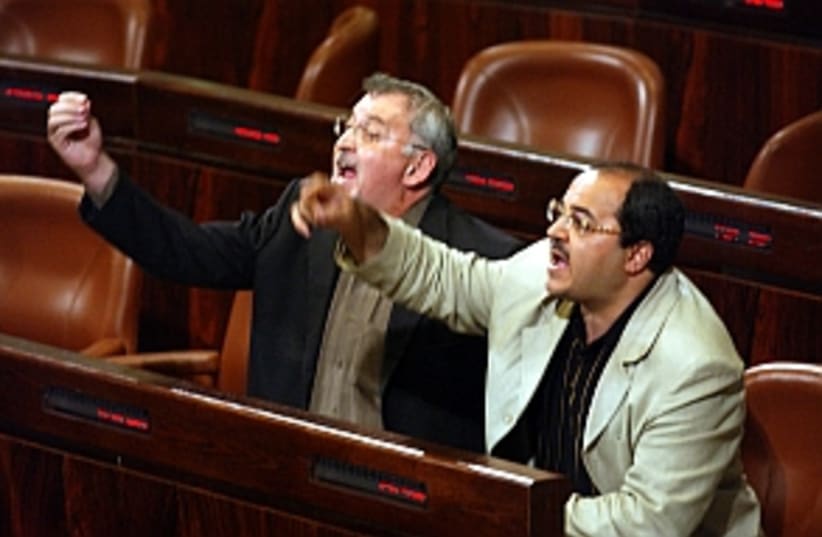| More about: | Nassim Nicholas Taleb, Osama bin Laden, United Arab List, Ibrahim Sarsur |
Arab parties consider unity
The new 2% Knesset threshold endangers some of the Arab parties.


| More about: | Nassim Nicholas Taleb, Osama bin Laden, United Arab List, Ibrahim Sarsur |